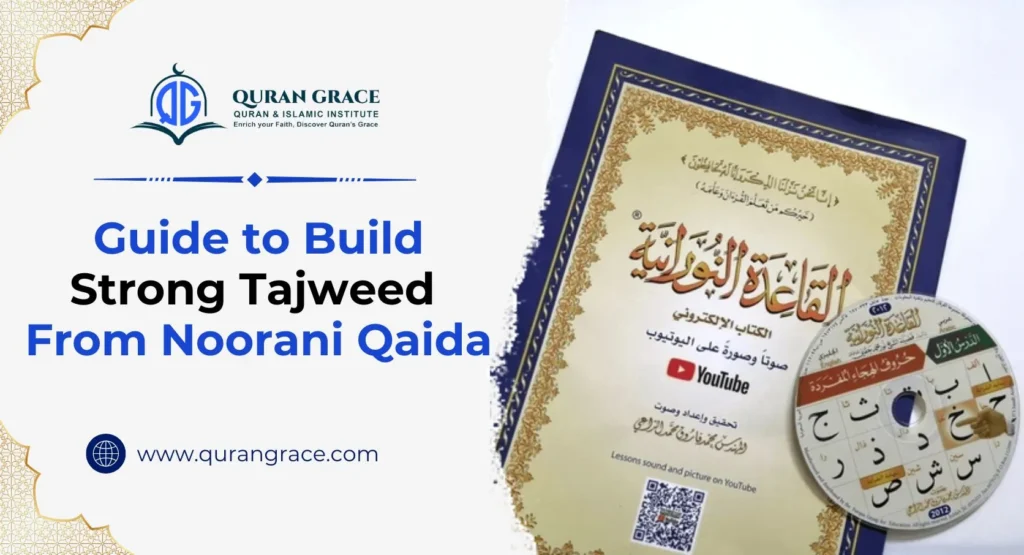Teaching your child to memorize the Holy Quran is one of the most beautiful and lasting gifts a parent can give. While the journey requires patience and consistency, certain techniques can help kids memorize the verses faster, with greater retention, and most importantly, with joy. A standard daily routine, use of multiple techniques, revision, and full-time motivation will make this journey super easy for young ones — especially when supported by a structured Quran memorization course for kids that guides them step-by-step.
Here is a sneak peek at the top helpful tips for kids to memorize the Quran fast.
5 Practical Tips to Memorize Quran Fast for kids
Kids from their early years (4 onwards) can begin their hifz journey with the short verses of any small surah. Let’s delve into the details to uncover the gems of memorizing quran fast!
1. Establishing an ideal yet easy routine
A fast memorization journey isn’t about long, exhausting sessions; it’s about short, consistent bursts that build a strong, lifelong habit.
- Set a Fixed “Quran Time”: Dedicate a specific 15–30 minute slot every single day. The best times are often when the child’s mind is freshest, such as after Fajr (early morning) or after Maghrib/Isha. This routine signals to the brain that it’s ‘Quran time,’ enhancing focus.
- Keep Sessions Short and Focused: For young children, their attention span is limited. Two 15-minute, highly focused sessions are far more productive than one tiring 60-minute session. Stop the session while they still want to continue—this keeps them eager for the next day.
- Create a Conducive Environment: Designate a quiet, distraction-free space. Remove toys, turn off the TV, and put away phones. A calm, well-lit area is crucial for deep concentration.
2. The Power of Repetition and Auditory Learning
Repetition is the cornerstone of all memory. For kids, combining repetition with clear recitation is a powerful formula.
- The Repetition Rule (Listen, Read, Repeat):
Listen: Have your child listen to a clear, slow recording of the new Ayah 1-2 times by a reciter (Qari) with excellent Tajweed (pronunciation rules).
Read: Have them read the Ayah from the Mushaf (copy of the Quran) while following the recitation.
Repeat Aloud: Ask them to repeat the Ayah aloud from memory 5 to 10 times before proceeding to the next step. Reciting aloud strengthens memory more than silent reading.
- Utilize Passive Listening: Play the Surah your child is currently memorizing in the background during quiet activities, like driving in the car, mealtimes, or before bed. This constant, gentle exposure helps the verses become subconsciously familiar.
- Start with Short Surahs: Begin the Hifz course journey with the shorter, rhythmic Surahs of Juz Amma (the last section of the Quran). Quick wins build confidence and motivation, making them eager to move on to longer sections.
3. Chunking, Visuals, and Engagement Tactics
Children are often visual and interactive learners. Use quran hifz techniques that engage their senses and break down the task.
- Break Down Verses (Chunking): Long verses can be overwhelming. Teach your child to break a long Ayah into 2-4 small, manageable phrases or ‘chunks.’ Master one chunk at a time, then join them all together. This prevents frustration and makes the verses digestible.
- Use Visual Aids:
Color-Coded Mushaf: A Quran with color-coded Tajweed rules can help a visual learner instantly recognize pronunciation patterns.
Writing: Have your child write down the Ayah they are struggling with in a beautiful notebook. The physical act of writing reinforces memory.
- Make it Interactive and Fun:
The “Recite and Toss” Game: Use a soft ball. Recite an Ayah and toss the ball to your child. They must recite the next Ayah perfectly before tossing the ball back.
Quiz Time: Use flashcards with the beginning of a verse and ask them to complete it.
Role-Play: Encourage your child to use their newly memorized verses in their daily Salah (prayer). This is the ultimate form of active revision.
4. The Crucial Role of Revision
Memorizing new verses is only half the battle; keeping them memorized is the true key to speed. Without consistent revision, what is learned quickly will be forgotten just as fast.
- The Daily Review Cycle: Dedicate the first 5–10 minutes of every session to revision before learning new verses. A simple schedule is:
- New Lesson: The new Ayat learned today.
- Yesterday’s Lesson: The Ayat learned in the previous session.
- Old Lesson: An older, randomly selected Surah that was completed a week or a month ago.
- Set Revision Goals: Use a chart or an app to track their revision. Seeing their progress visually boosts their determination.
5. Motivation, Understanding, and Encouragement
The child’s heart and mind must be connected to the words of Allah for the Hifz to truly take root.
- Teach the Meaning: Memorizing words alone is dry. Use simple, age-appropriate resources (like illustrated Quranic storybooks) to explain the meaning and context of the verses. Connecting the words to a story or lesson makes them exponentially more memorable.
- Positive Reinforcement: Offer immediate and continuous praise. A hug, a “Masha’Allah, that was perfect!”, a sticker, or a special weekend treat for achieving a milestone (like completing a whole Surah) is highly effective. Focus on celebrating their effort and consistency, not just the result.
- Lead by Example: A parent who actively recites and engages with the Quran sets the best example. When children see their parents prioritizing the Quran, they naturally develop a love and respect for the process.
Conclusion
By implementing these structured, consistent, and engaging methods, you can help your child embark on a successful and fulfilling journey to become a Hifz. You can also consider enrolling your kids in a intensive hifz program by Quran Grace with a free evaluation class to understand how it works. Let’s make this hifz journey super joyful and easy for our little ones!








